Evolutionary ecology

PhD students

Sen Dong
(November 2023 - present), jointly supervised by Prof. Jan Komdeur and Prof. Hannah Dugdale.
The genetic basis of fitness and behaviour: Quantitative genetics and genomics of senescence and personality in Seychelles warblers
I'm Sen Dong, and my research delves into the genetic foundations of senescence and personality traits using the unique Seychelles warbler (Acrocephalus sechellensus) as a model. As the exact nature of the relationship between personality and senescence variation is still not understood, high-quality and novel research is needed to clarify these relationships determine the underlying mechanisms that drive them, and investigate the relationship between personality and senescence.
By combining phenotype data, such as exploration behaviour and age-related reproductive output variance, with genomic information (SNPs, single-nucleotide polymorphism data generated from 1,800 Seychelles warbler individuals’ genomes at ca 5x coverage), we aim to provide a comprehensive understanding of the interplay between phenotype, genotype, personality, and senescence. Environmental data will also help us differentiate between genetic and environmental influences and establish genotype-phenotype links.
Our research seeks to answer four key questions:
1. What is the genetic architecture of traits associated with senesce – are they polygenic, whereby the additive genetic variance of each trait is proportional to the length of different genomic regions?
2. Do genomic regions underpinning traits that senesce covary with fitness?
3. Is there a relationship between personality (exploration behaviour) and reproductive and survival senescence?
4. What are the genetic and environmental factors that contribute to senescence and personality, and how do they influence the genotype-phenotype relationship?
This project is innovative, exploring a less-studied aspect of evolutionary ecology: the molecular and evolutionary aspects of senescence and personality. Its strength lies in its combination of experimental and fieldwork approaches, backed by the extensive long-term studies of the vulnerable Seychelles warbler population.

María del Rocío Meneses Ramírez
(February 2023-present) jointly supervised by Prof. María del Coro Arizmendi Arriaga (Universidad Autónoma de México) and Prof. Jan Komdeur
Connecting habitat for pollinators: How to restore endangered hummingbird habitat at managed forests?
The main subject I am interested in is understanding how management activities in fragmented forests affect the interactions of the pollinator community. I will use hummingbird-plant pollinator systems because hummingbirds are specialized pollinators sensitive to forest fragmentation, allowing us to study resource availability, habitat use, and the changes in the community assemblage level.
During my PhD, I will explore how these forest management strategies can affect the persistence of hummingbird-plant interactions in the long term. Also, I will explore the effect of some of these management practices on establishing and surviving nectar plants to propose a Restoration Plan to connect the habitat to natural or cultivated landscapes. The overall achievement of this project is creating a model for conserving the hummingbird pollination system based on community participation, raising awareness about the importance of pollination, and strengthening management actions aimed at promoting regional biodiversity.

Nynke Wemer
(October 2022 - present), jointly supervised by Prof. Alison Leslie, Dr. Vincent Naude and Prof. Jan Komdeur
The effect of human-wildlife conflict on the free-roaming cheetah density and distribution in South Africa
My name is Nynke Wemer. I am studying free-roaming cheetah presence, abundance and distribution in South Africa, while quantifying human-cheetah conflict on commercial properties. This will help with identifying specific areas that have the potential to become natural corridors and conservation areas, which are essential to the future survival of wild cheetah in southern Africa. I shall achieve this by focusing on the following chapters within my PhD i) developing a habitat suitability-based species distribution model and site selection, ii) questionnaire surveys to determine spatio-temporal conflict between cheetah and landowners and social modelling and iii) locating cheetah sentinel points by using camera traps and sniffer dogs and SECR (Spatially Explicit Capture-Recapture) modelling.
This PhD dissertation aims to supply information about the size, distribution and ranging pattern of the free-roaming cheetah, as well as reporting these findings back to landowners through a communication network. These aims help de-escalate human-wildlife conflict and creates possible corridors or tolerance and conservation areas for wild cheetah.
My research forms a part of the Free Roamer Cheetah Project, which is a collaborative project between Cheetah Outreach, Ashia Cheetah Conservation, Stellenbosch University and the University of Groningen. This complete research aims to be the first multi-disciplinary, wide-range survey which will have direct contribution not only to land users but will also assist in creating management plans for such a vulnerable species.
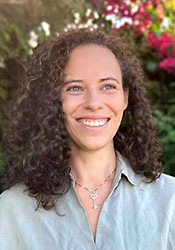
Allison Muller
(October 2022 - present), jointly supervised by Prof. Alison Leslie and Jan Komdeur
Establishing the distribution, feeding ecology and genetic connectivity of free-roaming cheetah in southern Africa
I am studying free-roaming cheetah movement ecology, distribution, and genetic connectivity within South Africa, to help identify corridors within an agriculturally transformed landscape. I shall achieve this through the use of telemetry-based collar movement data from ongoing free-roaming cheetah to locate sentinel points and determine ranging patterns; complement camera trapping analyses with systematic track-and-sign surveys; collect carnivore scat collection for dietary analyses; and use tissue samples/blood collected from ongoing free-roaming cheetah to determine effective genetic connectivity. The findings of this PhD dissertation aims will provide relative and useful information to landowners via a communication network to help de-escalate human-wildlife conflict, as well as identify areas of both movement and genetic connectivity. My research forms part of the Free Roamer Cheetah Project, a collaboration between Cheetah Outreach, Ashia Cheetah Conservation, Stellenbosch University and Groningen University, which aims to be the first multi-disciplinary, wide-range study on cheetah which will have direct contribution not only to land users but will also assist with the compilation of a management plan for such a vulnerable species.

Joe Churchill
(October 2022 - present), jointly supervised by Prof. Rodrigo Vasquez (UCH; University of Chile) and Jan Komdeur
Climate and environmental impacts on embryonic and nestling development regarding post fledgling survival
I am most interested in the effect of our globally changing climate and environmental conditions on the fitness, growth, longevity and survival of the thorn-tailed Rayadito (Aphrastura spinicauda). The aims of my PhD are to discover how different climate related factors impact individuals at key developmental stages such as the embryonic stage and the day of hatching and how these stages determine their survival, fitness and longevity into adulthood. My field season takes place from September – January in sub-Antarctica and Northern Patagonia in Chile each year. We use these two sites because these differ in climatic and environmental conditions which make a comparative study between two isolated populations ideal. The overall achievements of this PhD is to develop a theory that outlines what could happen to this bird species when conditions change in the field and how this may affect the population as a whole into the future. These results can be extended to other bird species and we can then make predictions as to what may happen to them in the inevitable event of a change in climate and environmental conditions.
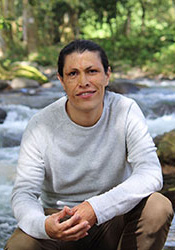
Ricardo Contreras Osorio
(August 2021 - present), jointly supervised by Coro Arizmendi (Universidad Nacional Autónoma de México) and Jan Komdeur
Hummingbirds in transition, effects of ecosystem displacement caused by climate change
My main interest is to understand how human activities impact bird communities, particularly under a landscape ecology approach. During my PhD, I assess how distribution of hummingbirds and their interacting plants could be modified by warmer climate. It is well known that pollinators play a key role in conserving ecosystemic interactions, however transformation of forests and habitat loss reduce the natural areas where birds and plants interact. I am studying how birds cope with landscape change using experimental gardens as a way to measure tolerance to perturbed areas. The ultimate goal of my study is to identify key conservation areas at a local level of montane cloud forest, and the hummingbirds living there.
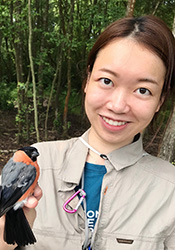
Xia Zhan
(January 2022 - present), jointly supervised by Jan Komdeur and Peter Korsten (Bielefeld University).
Competition as a driver of eco-evolutionary dynamics: linking individual aggression and environmental quality to reproductive performance
I am studying the combined effects of phenotype (aggression) and environmental quality in driving dispersal, settlement and fitness (reproductive performance) using a long-term individual-based population study of blue tits (Cyanistes caeruleus). Aggression is expressed during intraspecific competition over finite resources (food, territories, mates) essential for survival and reproduction. However, there are still knowledge gaps in our understanding of the trade-offs governing the eco-evolutionary causes and consequences of aggressive behavior. My PhD project aims at: (1) Testing for phenotype-environment correlation between aggression and territory quality; (2) Assessing the role of individual aggression in mate selection and the fitness consequences for each sex; (3) Documenting the links between individual aggression, environmental quality and breeding dispersal; (4) Providing a systematic review and/or meta-analysis on the trade-off between resource acquisition and resource utilization. This project will shed light on the role of among-individual variation in aggression in driving competition-induced phenotype-environment correlation and its implications for the adaptive potential of natural populations in a changing environment.

Donghui Ma
(December 2021 - present), supervised by Jan Komdeur and Franjo Weissing (Tres)
Our changing world: do ecological factors and sociality shape adaptive potential in social animals?
Description of my PhD program:
We are living in a constantly changing world, other creatures too, and most of them may be sensitive and vulnerable to environmental change. During my PhD, I want to address whether and how phenotypic plasticity helps social animals to adjust to the environment using burying beetle (Nicrophorus vespilloides) as a model organism. Specifically, I will uncover the relation between temperature and the degree of sociality, by testing the breeding performance under extreme temperatures. Meanwhile, I will also do another experiment in which the effect of soil moisture on the breeding behaviour (i.e. communal or biparental breeding) and reproductive outcome (i.e. the weight and number of larva and young beetles) will be investigated. The third ecological factor that will be studied is resources. As carcass is a bonanza for adult and larval burying beetles, I will adjust the size and distribution of carcasses, and study how this will affect the breeding behavior of the beetles. Finally, across Europe several wild beetle populations will be sampled and measured to know whether and how burying beetles adapt to different natural environments (e.g. altitude and habitat type) by morphological and behavioural change in nature.
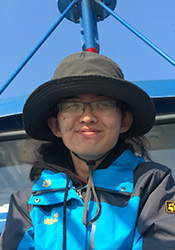
Gaoyang Yu
(March 2021 - present), jointly supervised by Jan Komdeur and Peter Korsten (Bielefeld University)
Understanding individual variation in female aggressiveness: what are the eco-evolutionary drivers?
I’m studying the fitness consequences of female aggressiveness in the blue tits (Cyanistes caeruleus). The PhD project aims at exploring the associations between individual aggressiveness and its fitness-related consequences (e.g., number of offspring produced, investment in parental care, offspring quality and paternity, and individual survival) to provide a powerful framework for improving our understanding of the eco-evolutionary causes and consequences of among-individual variation in behaviour. I focus on the overlooked female aggressiveness, but I will also compare females and males to build a comprehensive picture. I conduct field assessments in De Vosbergen in Groningen from March to June.
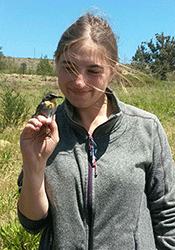
Jana Riederer
(September 2020), jointly supervised by Franjo Weissing (TRES) and Jan Komdeur
Social determinants of evolvability
My project:
Evolvability, the capability of a biological system to undergo adaptive evolution, is of increasing interest in various fields within evolutionary biology. However, so far most attention as concentrated on “genetic determinants” of evolvability. In my PhD, I therefore aim to open a new chapter of evolvability research, by focussing on “social determinants”: How do aspects of the social system of a biological system affects its ability to evolve? In doing so, I explore topics such as: the impact of sexual selection on the evolution of adaptive response mechanisms in changing environments; the evolution of cooperative strategies in complex fitness landscapes; or the role of sexual selection in shaping the Anolis lizard radiation. I hope to address my questions using both theoretical and through empirical approaches, combining individual based simulations and fieldwork on Anolis lizards.
My interests:
I have a broad interest in the various factors that generate, maintain, and shape variation. I like exploring anything from genetic aspects of mutation rates to evolution in behavioural ecology – as long as it concerns evolvability & evolutionary trajectories, I’m in! I am also especially intrigued by the evolution and evolutionary impact of genotype-phenotype maps, phenotypic plasticity, sexual selection, and the role of social systems in shaping evolution. On the methodological side, I am particularly interested in interdisciplinary approaches and specifically in linking theoretical and empirical research, as this plays a major role in my PhD project.
Publications:
- Riederer, J. M., Tiso, S., van Eldijk, T. J., & Weissing, F. J. (2022). Capturing the facets of evolvability in a mechanistic framework. Trends in Ecology & Evolution.
- Visser, B., Alborn, H. T., Rondeaux, S., Haillot, M., Hance, T., Rebar, D., Riederer, J. M., Tiso, S., van Eldijk, T. J., Weissing, F. J. & Nieberding, C. M. (2021). Phenotypic plasticity explains apparent reverse evolution of fat synthesis in parasitic wasps. Scientific reports, 11(1), 1-13.
- Dixit, T., Riederer, J. M., Quek, S., Belford, K., de Wand, T. T., Sicat, R., & Jiggins, C. D. (2020). Plasticity in flower size as an adaptation to variation in pollinator specificity. Ecol. Entom, 45, 1367-1372.
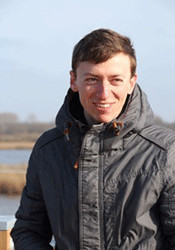
Jan Kreider
(July 2020), jointly supervised by Ido Pen (TRES), Leo Beukeboom (EGDB) and Jan Komdeur
Towards an eco-evo-devo theory for the evolution of eusociality - Integrating theory, field experiments and molecular genetics
The transition to eusociality has yielded complex animal societies with reproductive queen (and king) and mostly sterile worker castes. During my PhD project, I develop new analytical and individual-based simulation models to understand the evolutionary transition to eusociality. In these models, I aim at unifying recent approaches that explain the evolution of eusociality by inclusive fitness benefits or parental manipulation or invoke epigenetic inheritance to explain how eusociality can evolve from an ancestrally plastic phenotype in regard to the expression of helping behaviours. I experimentally test the theoretical model predictions on the allodapine bee Exoneura robusta, which exhibits intraspecific variation in social behaviour and therefore is appropriate to understand the emergence of helping behaviours.
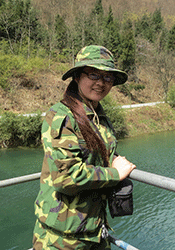
Wenxia Wang
(October 2019 - present), jointly supervised by Jan Komdeur and Hua Wu (Central China Normal University)
Evolution of parental care and communal breeding
The area I’m focusing on is the reproductive behaviour of animals, especially on parental care. I conduct studies on the evolution of parental care and communal breeding with the burying beetles (Silphidae, Nicrophorus) by using field experiments and molecular techniques. The main aim of my research is to investigate whether dominant individuals adjust their parental care behaviour based on the subordinates’ intrinsic state (e.g. body size, condition, health). I will investigate whether cooperating parents adjust their amount of care to the amount of subordinates' care. I will also investigate whether the individuals that provide care longer have more offspring.
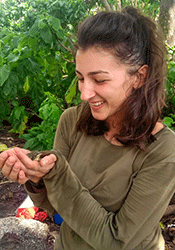
Tara Cox
(2018 - present), joint PhD student at the universities of Leeds (UK) and Groningen, supervised by Terry Burke (U Sheffield) and Jan Komdeur (U Groningen)
Causes and consequences of animal personalities in the Seychelles warbler
I am a PhD student at the University of Leeds researching the behavioural and evolutionary ecology of the Seychelles warbler. More specifically, I am studying their ‘animal personalities’, a term used to describe consistent between individual variation in behavioural traits. A large body of research has demonstrated the prevalence of animal personalities across many taxa, including the Seychelles warbler. However, our understanding of the origins of animal personalities, as well as their implications on life-history strategies, remains limited.
For animal personalities to evolve, they must have a fitness benefit and a genetic basis. I will explore whether there are fitness implications related to possessing different personality traits, particularly reproductive success and survival. In addition, I will use molecular analyses, including genomic methods, to determine the genetic underpinning of between individual variation in behavioural traits. I further aim to explore whether animal personalities play a role variation of life history strategies, including an individual’s propensity to disperse from their natal site or exhibit helping behaviour in their natal territory.
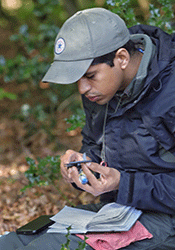
Stephen Salazar
(October 2017 - present) joint PhD student at Bielefeld University (Germany) and the University of Groningen, supervised by Peter Korsten (Bielefeld Uni) and Jan Komdeur (Uni Groningen)
The costs and benefits of individual variation in behaviour
Even within the same population, individuals differ markedly from one another in their behaviour. Although there is now overwhelming evidence for the wide-spread occurrence of such between-individual variation in behaviour, its evolutionary origin and maintenance remain largely unclear. I am interested in whether, and if so, how, individual variation in an ecologically relevant behaviour, territorial aggression, may mediate trade-offs among a suite of fitness-related traits in a wild population of a common bird species, the blue tit (Cyanistes caeruleus). The study site is located ca.12 km south of the city of Groningen in the Netherlands. Aggression is a key social behaviour expressed to monopolize vital resources such as food, territories and mates. It also bears severe costs such as high energy expenditure, injury or even death. I am specifically interested in how between-individual variation in male territorial aggressiveness may relate to variation in the quality of a male’s breeding territory, its siring success, its proneness to take risks, and its investment in parental care.
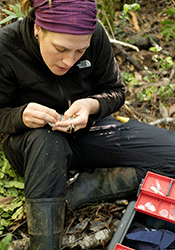
Martje Birker
(July 2017 – present), jointly supervised by Jan Komdeur, Ton Groothuis (EGDB) and Rodrigo Vásquez (Universidad de Chile)
Do parental effects mediate adaptation to climate differences? - A study in a bird species breeding at different latitudes
I study behavioural and physiological parental effects as mechanisms to adapt to climatic extremes. More specifically, I focus on parental breeding behaviour and differential allocation of maternal yolk hormones in a small passerine bird of Chile. The thorn-tailed rayadito (Aphrastura spinicauda) has an extreme latitudinal and altitudinal distribution. It is a sedentary bird breeding from the limits of the hottest and driest desert of the world, the Atacama desert, to cold and stormy sub-Antarctic Patagonia. I compare the bi-parental incubation behaviour and yolk thyroid hormones between populations, and test their adaptive potential experimentally.
- Altamirano TA, Ibarra JT, de la Maza M, Navarrete SA, Bonacic C (2015). Reproductive life-history variation in a secondary cavity-nester across an elevational gradient in Andean temperate ecosystems. The Auk 132(4): 826–835, doi: 10.1642/auk-15-28.1
- Wang AJM, Beissinger SR (2011). Partial incubation in birds: Its occurrence, function, and quantification, The Auk 128(3): 454–466, doi: 10.1525/auk.2011.10208

Qintian Zhao
(September 2014 – present), jointly supervised by Jan Komdeur and Xin Lu (Wuhan University)
A test of the adaptive benefits of cooperatively breeding ground tits
I am a PhD student investigating the evolution of cooperative breeding in ground tits (Parus humilis). This is one of the first research projects in China that addresses the evolution of cooperative breeding. My study species is a cooperatively breeding passerine endemic to the Tibet plateau, an area characterized by high altitude and harsh climate. My aims are to investigate (i) whether helpers have an active preference for cooperating with kin; (ii) whether other factors (e.g. ,helper age, breeding group size) affect food provisioning to chicks and (iii) what are the long-term fitness benefits of helping behaviour for both helpers and breeders.
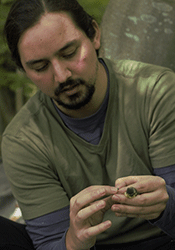
Reinaldo Marfull Castro
PhD student (2013 - present), jointly supervised by Jan Komdeur and Peter Korsten (University of Bielefeld, Germany)
Causes and consequences of sibling competition in the family - A study on blue tits
In my thesis, I investigate the factors that influence the level of sibling competition and their fitness consequences on offspring in blue tits (Cyanistes caeruleus), a common passerine. In this context, I am particularly interested in offspring begging behaviour, given its pivotal role in sib-sib and parent-offspring interactions. Blue tits are a perfect model to study the adaptive role of begging behaviour both in real-life in controlled circumstances, as well as in experimental and observational conditions. I wonder to what extent parental behaviour may influence the level of sibling competition, whether and how the level of sibling competition influences begging behaviour, how and what aspects of the multiple-component begging behaviour (i.e. a combination of acoustic and visual signals) affect parent-offspring communication and if so, what the consequences are for offspring fitness.
Planned defenses in 2024
- Reinaldo Marfull: Parental care - Shaped by parent-offspring conflict and co-adaptation (NWO ALW grant; Q1/2 2020)
- Wenxia Wang
- Martje Birker
Postdocs
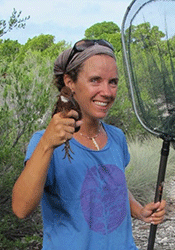
Janske van de Crommenacker
(2018 - present)
I've been part of the Komdeur team for quite a while: first, from 2006-2011 as a PhD student investigating oxidative stress and physiology in the Seychelles warbler, and now - after having worked for a number of years as conservation manager in the Seychelles - I'm back in a postdoc position investigating relationships between early-life conditions and future phenotype, behaviour and fitness. For this study, the multi-faceted and long-term database on the Seychelles warbler again proves its value. I use telomere length as a marker of biological impact, which actually relates to my interest for combining physiology with ecology, and the theme of ageing, telomeres and oxidative stress.
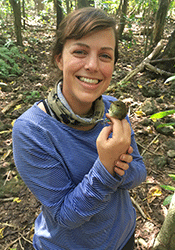
Alexandra Sparks
(2018 - present)
Within wild populations, there is considerable variation in the onset and rate that individuals senesce (or deteriorate with age), but the causes of this variation remain poorly understood. The long-term Seychelles warbler dataset offers a fantastic opportunity to investigate how genetic, social, transgenerational and environmental factors interact to generate individual variation in ageing patterns. I am particularly interested in using genomic data and quantitative genetic analyses to investigate the genetic basis of senescence in the wild, and investigate how genetic variation in ageing rates is maintained in the face of natural selection. I am also interested in how early life conditions and life history decisions influence ageing patterns in later life.
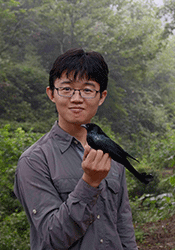
Lei Lv
(2017 - present)
I am an evolutionary ecologist primarily interested in how birds respond to different environmental or social conditions. From 2013 to 2016, I did my joint PhD on the context-dependent breeding strategy of hair-crested drongos supervised by Prof. Jan Komdeur and Prof. Zhengwang Zhang (Beijing Normal University). After that, I started a postdoc with two separate projects. In collaboration with Jan and Zhengwang, the first project investigates the trade-off between parental care and pursuing extra-pair matings for male hair-crested drongos. We test whether a mating pattern of high-quality males who have a higher chance of gaining extra-pair matings pairing with females who could provide more parental care as compensation of reduced parental care of their partners facilitates the occurrence of this trade-off. The second project is in collaboration with Prof. Loeske Kruuk, Prof. Andrew Cockburn (Australian National University) and Dr. Yang Liu (Sun Yat-sen University) to test how climate influences the breeding phenology and mortality of superb fairy-wrens, and whether climate plays a role in the population declining process.
- Lv L, Li J, Kingma SA, Gao C, Wang Y, Komdeur J, Zhang Z (2018). Do hair-crested drongos reduce prospective territory competition by dismantling their nest after breeding? Behavioral ecology and sociobiology 72(1): 12, doi: 10.1007/s00265-017-2422-1
-
Lv L, Komdeur J, Li J, Scheiber IB, Zhang Z (2016). Breeding experience, but not mate retention, determines the breeding performance in a passerine bird. Behavioral ecology 27(4): 1255-1262, doi: 10.1093/beheco/arw046
Support staff
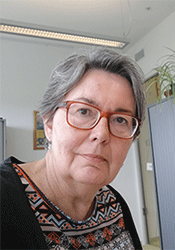
Joyce Rietveld
(Secretary)
I have been a secretary at the University of Groningen in a number of departments since 1989. Currently I work for the Conservation Ecology Group (Conseco) and the Behavioural and Physiological Ecology Group (BPE).
I am in the office (0572) of the 5th floor of the Linnaeusborg on four days per week (Monday, Tuesday, Thursday and Friday).
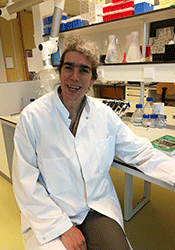
Maaike Versteegh
(Research assistant)
I am working as a research assistant in the Komdeur group and the Tieleman group. I am responsible for the ecological immunology lab. In the lab we do a wide array of assays to describe the immune system of birds (e.g. haemagglutination/hemolysis assay, IgY’s, ovotransferrin, haptoglobin concentrations). I am also involved in fieldwork and statistical assistance.

Marco van der Velde
(Research technician)
I am a research technician for the research institute GELIFES (formerly CEES) since 2004. For the Komdeur group I run the DNA lab, and assist post-docs, PhD- and master students with their molecular labwork. We do mainly microsatellite genotyping and molecular sexing of birds, but more recently also some ddRAD/NGS and gene expression work. The main species I am working on are the Blue tit and the Seychelles warbler for which we keep long-term genetic pedigrees, but I am also involved in projects on burying beetles, Chinese penduline tits, Hair-crested drongos and Thorn-tailed rayaditos.
Co-supervised PhD students

Tom Brown
University of Leeds (Hannah Dugdale), University of East Anglia (supervised with David Richardson)
Biomarkers of senescence in the Seychelles warbler
Why individuals of the same chronological age vary in biological age is not well understood. Biomarkers that reflect age-related declines in condition are the key to understanding this variation. Tom is testing which biomarkers of biological age best predict future survival and breeding success in the Seychelles warbler, and whether variation in these biomarkers can be explained by environmental and social factors. This knowledge will help guide interventions that could prolong healthy life.

Charlotte Bartleet-Cross
University of Leeds (Hannah Dugdale), University of Sheffield (supervised with Terry Burke)
Conservation genomics of the Seychelles warbler
Inbreeding has a huge effect on the evolution and proliferation of small, isolated populations of conservation concern. Despite its importance, the genetic architecture of inbreeding and its influence on fitness is poorly understood. By analysing the genome and comparing inbreeding depression in source and translocated populations of Seychelles warblers, Charlotte will produce models to guide future conservation management plans.
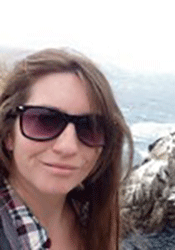
Charli Davies
University of Leeds (Hannah Dugdale), University of East Anglia (supervised with David Richardson)
Antagonistic effects and the maintenance of genetic variation
Genetic variation is crucial in maintaining the adaptive potential of populations. Variation is particularly important when considering immune genes, determining the ability of individuals to combat pathogens and thus influencing their survival. Charli is investigating how different mechanisms – including antagonistic effects on survival and reproduction – interact to maintain genetic variation at various immune genes within the Seychelles warbler.

Ellie Chesterton
University of Leeds, Hannah Dugdale (co-supervised by David Richardson and Jan komdeur)
Individual variation in reproductive success in the Seychelles warbler
The evolution of cooperation is a topic of great interest to behavioural ecologists. Ellie is studying the relative effect of genetic, social and environmental conditions on reproductive success in the Seychelles warbler. Specifically, Ellie is looking at how the social environment impacts fitness, how reproductive success differs between the two sexes, and how genomic basis underpinning this variation is distributed across the genome.
MSc students
-
Coen Beltman (ongoing) Competition for nest-sites between sympatric blue tits and great tits
Elizabeth Los (ongoing) Ageing in feather quality in Seychelles warblers
- Siddharth Girish (ongoing) Behavioural response of female Bornean orangutans to male long calls
- Marina Pizarro-Krkljus (ongoing) Gene expression and morphological correlates of sociality and social dominance in Exoneura robusta
-
Atharva Andhare (ongoing)
Among-individual variation in intra- and inter-specific aggressiveness in blue tits - Anaïs Paturle (ongoing)
-
Irene Martinez Baquero (ongoing)
Research and field skills training on animal behaviour and behavioural ecology in a long-term blue tit population study -
Dennis Sliep (ongoing)
Adaptive rediation in anoles -
Alex Schlatmann (2021)
Olfactory kin discrimination in begging blue tit nestlings -
Lisanne Leenheer (ongoing)
The influence of the early-life environment on parental care and competition behaviour in burying beetles -
Alexander Schlatmann (ongoing)
Influence of parental cooperation on divorce in Seychelles warblers -
Koen Baas (2021)
Comparing aggressiveness in male and female blue tits - Repeatability and the effects of intruder sex and song presence -
Michiel Eijkelkamp (2021)
Amphibian and reptile road kills on bike paths in the Bargerveen, the Netherlands -
Pradyut Rao (2021)
Assortative mating based on ring colour in Seychelles warblers -
Kiran Lee (2021)
Primary sex ratio control in a changing environment in Seychelles warblers -
Vidisha Bansal (2021)
Feeding competition and female dominance in three species of lemur in Madagascar (collaboration Prof. Peter Kappeler, University of Göttingen, Germany) -
Mariana Florez Blesgraeft (2021)
Variation in abundance of the dwarf caiman (Paleosuchus trigonatus) in main river channels and forest streams in Peru (collaboration with Dr. Chris Kirkby, Association for Tropical Biology and Conservation, Peru) -
Joris Damhuis (2021)
Implications of adult sex ratio and personality on offspring fitness in dung beetles -
Yin Xu (2020)
The effects of social density and sociality on the microbiome of rummy nose tetra -
Deborah Sallé (2020)
Do rats associate with individual social partners with specific levels of cooperativeness? (collaboration with Prof. Michael Taborksy, Bern Uni) -
Rahel Sarah Schnell (Erasmus student, 2020)
The effects of adult sex ratio on parental investment and parentage in burying beetles -
Joseph Churchill (2020)
Inter-population differences in chick and adult hematocrit levels in Thorn-tailed Rayadito's -
Samyuktha Rajan (2020)
1) The effect of thyroid hormones on the embryonic development of an altricial bird species
2) Latitudinal differences of extra-pair paternity in the thorn-tailed rayadito (Aphrastura spinicauda) -
Zimai Li (2020)
Intra-clutch egg and nestling size variation in Thorn-tailed Rayaditos (Aphrastura spinicauda) -
Frigg Speelman (2020)
Behavioural responses of barnacle geese to human disturbance and effects on breeding success -
Nynke Wemer (2020)
The fitness consequences of aggressiveness in blue tits (Cyanistes caeruleus) -
Emiel Zuidema (2020)
Evolution of parental care strategies in Chinese penduline tits -
Maaike van Bodegom (2020)
Influence of parental condition on parental care in handicapped hair-crested drongos -
Josefien Tankink (2020)
Social interactions as a function of the Adult Sex Ratio in Verreaux’s sifakas (Propithecus verreauxi) - Amber Bullock (2020)
-
Paula Escriche Chova (2019)
Effects of housing conditions on anxiety-like and exploratory behaviour in C57BL6/J male mice -
Chiara Cardinali (2019)
Effects of housing conditions on energy balance in C57BL6/J male mice -
Kasper Hlebowicz (2019)
Tough choices - fecundity‒survival trade-off in blue tits in the context of risk-taking during parental care -
Toni Hoenders (2019)
Postponement of full incubation onset at lower latitudes in a bird breeding in climatic extremes -
Lisa Rose Haaksma (2019)
Interpopulational differences in nestling provisioning in a bird breeding in climatic extremes -
Denise Roffel (2019)
Non-kin benefits of cooperation in communally breeding burying beetles -
Manon Spaans (2019)
Implications of adult sex ratio on dispersal in a dung beetle meta population system -
Katia Bougiouri (2019)
Mito-jay-nomics - A comparitive analysis of corvids using sex novel jay mitochandrial genomes -
Mathilde Legoguelin (2019)
Evolution of parental care strategies in Chinese penduline tits -
Arne van Eerden (2018)
Food, predation and attractive neighbours - Nest-site selection and nest survival in the Seychelles Warbler -
Julia Camacho Garcia (2018)
Male territorial aggressiveness and paternity in a wild population of blue tits
Former PhD students
- Mirjam Borger, 2024, How to prime your offspring
- Lisheng Zhang, 2023, The implications of adult sex ratios on evolutionary dynamics of dung beetles
- Jia Zheng, 2022 Evolutionary ecology of the variable breeding system of Chinese penduline tits
- Xiaoyan Long, 2022 The evolution of parental sex roles
-
Giogrio Karapetsas, 2021
Effects of laboratory housing conditions on meurobiology of energy balance in mice -
Michela Busana, 2021
Drivers of cooperative breeding and population dynamics in Seychelles warblars (NWO grant) -
Long Ma, 2021
Eco-evolutionary routes towards animal sociality. Ecology, behaviour and communication in communal breeding of burying beetles -
Sajad Ashghali Farahani, 2020
Coevolution in host-parasite systems - Behavioral strategies of native and invasive intermediate hosts, thesis -
Sara Raj Pant, 2019
Understanding the evolution of infidelity using the Seychelles warbler system (NWO Top grant), thesis -
Frank Groenewoud, 2018
Better together - Cooperative breeding under environmental heterogeneity (NWO Top grant), thesis -
Martin Hinch, 2017
Why do animals have territories? (NWO VICI grant), thesis -
Lei Lv, 2016
Condition mediates context-dependent breeding strategies and consequences, thesis -
Seyed Mehdi Amininasab, 2016
The effects of environmental and individual quality on reproductive performance - A case study on blue tits, thesis -
Minke Langenhof, 2015
Living in a changing world - How early-life development influences animal and human ability to cope with change (RUG research support grant), thesis -
David John Wright, 2014
Evolutionary and conservation genetics of the Seychelles warbler, thesis -
Berber de Jong, 2013
Testosterone a female hormone - Testing the function and evolution of testosterone in female birds, thesis -
Martijn Hammers, 2013
Ecology of senescence in a cooperatively breeding bird - A long-term study on the Seychelles warbler (NWO ALW grant), thesis -
Ralph Buij, 2013
Raptors in changing West African savannas - The impact of anthropogenic land transformation on populations of Palearctic and Afrotropical raptors in northern Cameroon, thesis -
Elske Schut, 2012
Sexual selection in the Blue tit - The role of MHC and post-copulatory effects (RUG research support grant), thesis -
Reinder Radersma, 2011
The ecological and evolutionary consequences of broodsex ratio variation (NWO VICI grant), thesis -
Janske van de Crommenacker, 2011
Hard times in paradise? Oxidative status, physiology and fitness in the tropical Seychelles warbler (NWO WOTRO grant), thesis -
Oscar Vedder, 2011
All's fair in love and war - Reproductive strategies, intra-specific competition and sexual selection in blue tits (EU grant), thesis -
Chris Trierweiler, 2010
Travels to feed and food to breed - The annual cycle of a migratory raptor, Montagu's harrier, in a modern world, thesis -
Stephanie Michler, 2010
Sex-specific strategies in a sex-biased world (NWO VICI grant), thesis -
Rene van Dijk, 2009
Sexual conflict over parental care in penduline tits, thesis -
Marion Nicolaus, 2009
Reproductive rates under competition, thesis -
Kim Hutchings, 2009
Parasites, MHC genes and fitness in the Seychelles warbler (NWO VICI grant) -
Cas Eikenaar, 2008
Should I stay or should I go? - Natal dispersal in the Seychelles warbler (NWO VICI grant), thesis -
Lianne Brouwer, 2007
Cooperative breeding and density regulation in small island populations of the Seychelles warbler (NWO VICI grant), thesis -
Mathew Leslie Berg, 2007
Sexual selection and reproductive strategies in songbirds - Territoriality, mate attraction, parentage and parental care, thesis -
Peter Korsten, 2006
Avian sex allocation and ornamental coloration – A study in blue tits (NWO ALW grant), thesis -
Karin Bouwman, 2005
The illusion of monogamy - Patterns of extra-pair paternity in the reed bunting Emberiza schoeniclus(NWO ALW grant), thesis -
Iain Woxvold, 2004
Breeding ecology and group dynamics of the apostlebird -
Ken Kraaijeveld, 2001
The function of mutual ornamentation in the black swan -
Jan Drachmann, 1997
Sexual selection and reproductive success in the linnet Carduelis cannabina -
Thomas Bregnballe, 1996
Reproductive performance in great cormorants during colony expansion and stagnation
Co-supervisor of:
- Kat Bebbington
-
Ákos Pogány, 2014
Breeding systems in penduline tits - Sexual selection, sexual conflict and parental cooperation - Danni Ellinger
-
Lewis Spurgin, 2012
Adaptation and differentiation in wild bird populations -
István Szentirmai, 2005
Sexual conflict in penduline tit Remiz pendulinus
Former postdocs
RUG- Hannah Dugdale
- Christiaan Both
- Niels Dingemanse
- Carlos Botero
- Sjouke Kingma
- Gigi Schloegl
- Caroline Isaksson
- Michael Magrath
- Marco van de Velde
- Lewis Spurgin
- Isabella Scheiber
- Martijn Hammers
- Richardson
- Bregnballe
- Hadfield
| Last modified: | 26 March 2024 3.21 p.m. |
